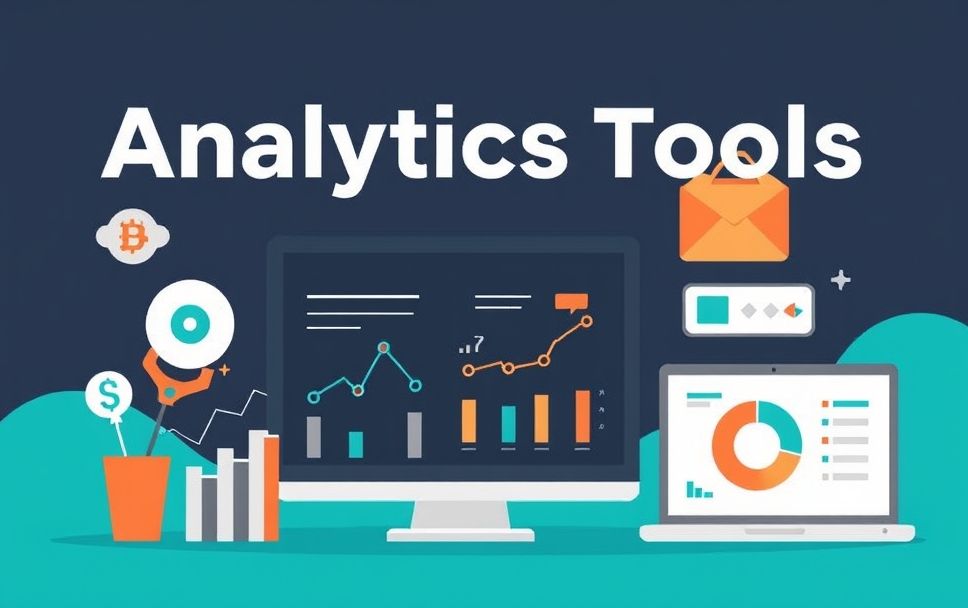What Are Analytics Tools?
Analytics tools are software applications designed to collect, analyze, and interpret data from various sources, primarily to help businesses understand their performance, user behavior, and marketing effectiveness. These tools are essential in digital marketing, providing insights that guide strategic decisions, optimize campaigns, and improve user experience. By harnessing data, organizations can make informed choices that lead to increased efficiency and profitability.
The Importance of Analytics Tools in Digital Marketing
In today’s data-driven world, analytics tools play a crucial role in shaping marketing strategies. They offer valuable insights into customer preferences and market trends. Understanding this information is vital for several reasons:
- Data-Driven Decisions: Analytics tools provide empirical evidence that can influence marketing strategies, allowing marketers to pivot based on what is working or not.
- Customer Insights: By analyzing user behavior, businesses can tailor their offerings to meet customer needs and enhance satisfaction.
- Performance Tracking: These tools help in tracking the performance of various marketing channels, enabling marketers to allocate resources more effectively.
- Competitive Advantage: Companies that leverage analytics tools can gain an edge over competitors by responding quickly to market changes and consumer demands.
Key Features of Analytics Tools
When evaluating analytics tools, consider the following features that enhance their effectiveness:
- Data Visualization: Effective tools provide intuitive dashboards and visual reports that make data interpretation accessible.
- Real-Time Data Processing: The ability to analyze data in real time allows marketers to make quick decisions and optimize campaigns on the fly.
- Integration Capabilities: Good analytics tools can integrate with other software and platforms, making it easier to gather and analyze data from various sources.
- Custom Reporting: The ability to create customized reports tailored to specific business needs enhances the usability of analytics data.
Popular Analytics Tools and Their Applications
Here are some of the most widely used analytics tools in the industry today, along with their primary applications:
| Tool | Purpose | Example of Use |
|---|---|---|
| Google Analytics | Website traffic analysis | Tracking user behavior on your website to optimize conversion rates. |
| Adobe Analytics | Advanced marketing analytics | Analyzing customer journeys across various channels for better targeting. |
| HubSpot | Marketing automation and analytics | Measuring the impact of email campaigns and inbound marketing efforts. |
| Hotjar | User behavior analysis | Utilizing heatmaps to see where users click and how they navigate your site. |
Practical Applications of Analytics Tools
To maximize the benefits of analytics tools, consider the following practical applications:
- Improving Website Performance: Use Google Analytics to identify pages with high bounce rates and optimize them to keep users engaged.
- Enhancing Marketing Campaigns: Leverage Adobe Analytics to analyze the effectiveness of multi-channel marketing efforts, allowing you to focus on the highest performing channels.
- Customer Segmentation: Utilize HubSpot to segment your audience based on behavior and demographics, enabling personalized marketing strategies.
- User Experience Optimization: Apply insights from Hotjar to redesign website elements based on actual user interactions.
Related Concepts in Digital Marketing
Analytics tools are closely related to several other concepts in the realm of digital marketing:
- SEO (Search Engine Optimization): Analytics tools help track the performance of SEO strategies by monitoring organic traffic and keyword rankings.
- PPC (Pay-Per-Click) Advertising: By analyzing conversion rates through analytics tools, marketers can fine-tune their PPC campaigns for better ROI.
- Content Marketing: Analytics can reveal which types of content engage users the most, guiding future content creation efforts.
- Email Marketing: Tools can track open rates and click-through rates, providing insights into how to improve email campaigns.
Conclusion: Leveraging Analytics Tools for Success
In conclusion, analytics tools are indispensable for any digital marketer aiming to succeed in a competitive landscape. By understanding their functionalities and applications, you can transform raw data into actionable insights that drive growth and enhance user experience. Remember, the key to effective marketing lies in not just collecting data, but in analyzing it effectively to make informed decisions.
As you explore various analytics tools, consider how you can integrate them into your daily marketing practices. Whether you’re tracking user behavior, optimizing campaigns, or improving customer experiences, these tools can provide the insights needed to achieve your goals. Start experimenting with different analytics tools today and watch your marketing strategies evolve!









